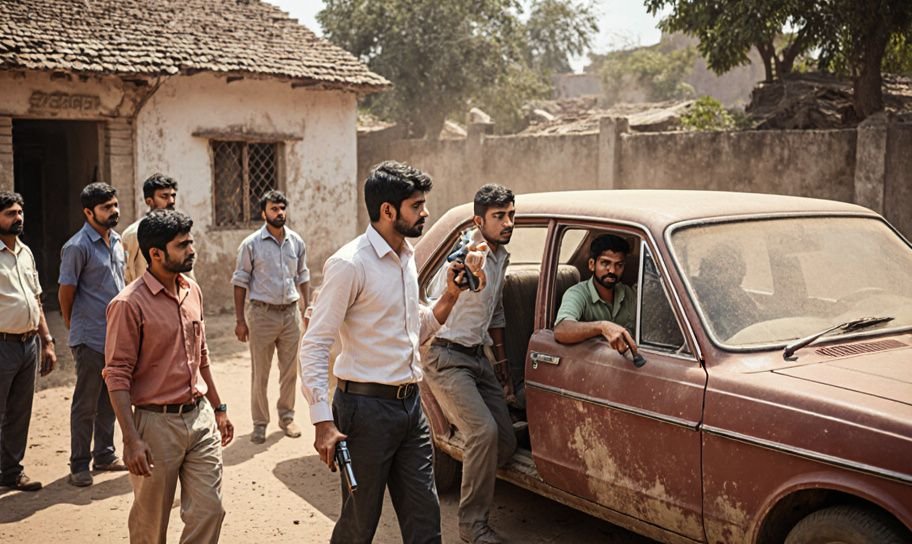
In a dramatic turn of events, the Supreme Court has overturned the conviction of Govind in a murder case, citing insufficient evidence. The case, which involved the murder of Promila in 2016, had previously seen Govind sentenced to life in prison. Let's break down what happened.
On June 12, 2016, Promila was killed in her village, M.P. Majra, Haryana. The police were alerted by a phone call about three boys arriving in a car and shooting her. The police report was filed by Promila's brother, Pradeep, who later claimed he could identify the attackers.
"Pradeep alleged that the murder was a plan involving his sister's in-laws and three unknown individuals."
Govind, along with Amit and Sanoj, also known as Sonu, was arrested shortly after the incident. The police found a gun and bullets with Govind, which were key to his conviction. However, Daya Kaur and Ved Prakash, initially named in the police report, were not charged.
"The charges were based on the finding of a gun and the statements of witnesses, who later changed their stories."
The trial court found Amit and Sanoj not guilty but convicted Govind, sentencing him to life in prison. The conviction was mainly based on finding the weapon and the Forensic Science Laboratory (FSL) report.
"The High Court upheld the conviction, relying heavily on the FSL report."
Govind's appeal argued that the conviction was unfair due to unreliable evidence. The Supreme Court examined the lack of eyewitness testimony and the questionable finding of the weapon.
"The court noted that the key witnesses, including Pradeep, did not support the prosecution's case."
Eyewitnesses Changed Their Stories: Pradeep and Sandeep, who were supposed to be key witnesses, did not support the prosecution in court.
Finding of Weapon: The gun was found in an unlocked box accessible to many, raising doubts about its connection to the crime.
Motive and Acquittal: The alleged motive was not proven, and other accused were found not guilty.
"The court emphasized that just finding a weapon is not enough to prove guilt beyond reasonable doubt."
The Supreme Court decided that the evidence against Govind was not enough and ordered his release. This case highlights the importance of solid evidence and the role of witness credibility in criminal trials.